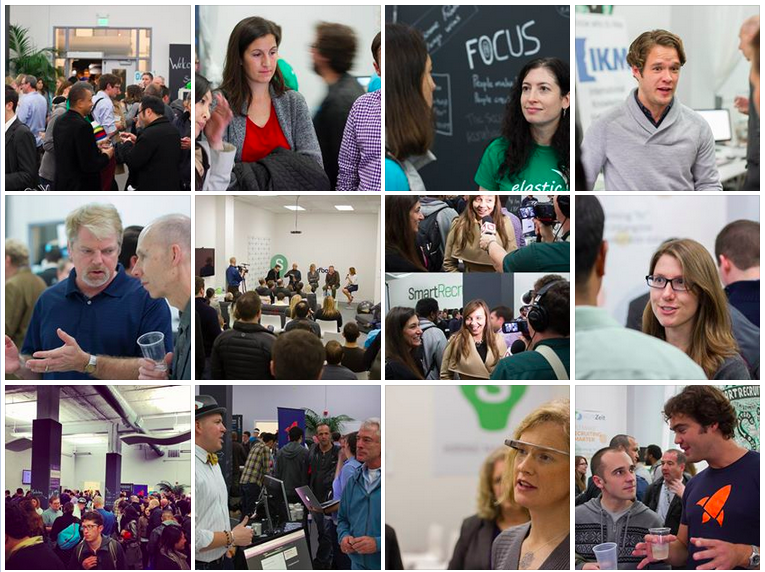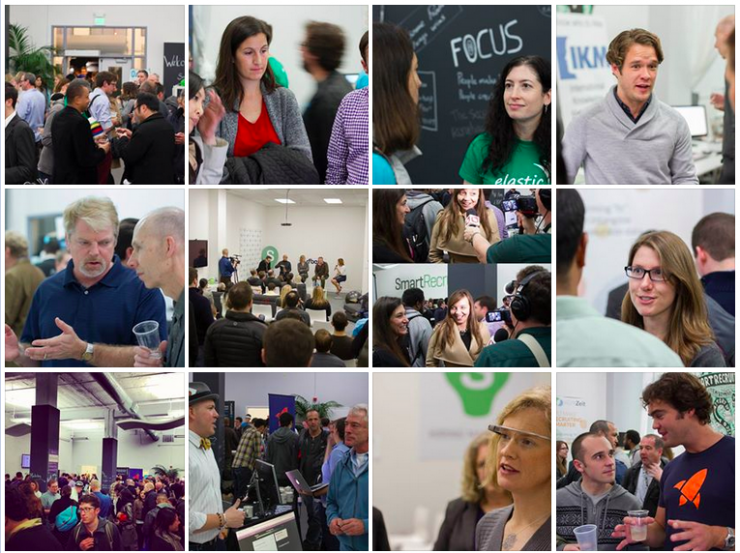If you weren’t at the #sfbeta Future of HR event at SmartRecruiters HQ, you missed out on the opportunity to connect with dozens of HR tech companies and evangelists shaping the future of work.
Here’s what just a few of the 300+ attendees had to say about The Future of HR:
Great time at @SmartRecruiters offices w/ #sfbeta for #hr startups, Thanks @Maksim @jerometernynck w/ @colejfox @blogging4jobs
— Jonathan Duarte (@JonathanDuarte) January 9, 2014
Agreed, Jessica. Good showing! RT @blogging4jobs Hanging out @smartrecruiters and their #sfbeta event. Pretty awesome!! #hrtech
— Bob Lehto (@safetybobsf) January 9, 2014
Educated myself on #recruitingtech and #hrtech at tonight’s #sfbeta event. Thank you @SmartRecruiters!
— Pam Davis, MA (@sfpmdvs) January 9, 2014
Ok, this is crazy right here at @SmartRecruiters‘ offices: #SFBeta the future of HR in the house http://t.co/Exx4Soh7pl #Mixer #Network #HR
— Rob Garcia (@RobGarciaSJ) January 9, 2014
The event, the year’s first #sfbeta startup mixer, kicked off with a panel discussion on how HR tech can disrupt the workforce in 2014. Moderated by #sfbeta producer Michael Gold, panelists included Zenefits CEO Parker Conrad, Gild Chief Scientist Vivienne Ming, Forward.us NW Organizing Director Raquel Mata, and SmartRecruiters CEO Jerome Ternynck. The increasing importance–and benefit–of harnessing second and third degree social connections, through the use of HR technology was the common theme of the conversation.

“The economy is not producing jobs,” stated Ternynck, “it is producing job openings.” Panelists agreed that companies of all sizes, but especially small businesses, are having a hard time filling these openings. Given the average time sink of 100 days and $3500 for filling each new job requirement, as noted by Ternynck, it’s likely many small business owners opt out of expanding their staff even if it could lead to a significant increase or expansion of their business.
“Allow those who are talented to work here or start their company here,” says @FWD_us Director Raquel Mata. #SFbeta #visas — David Smooke (@DavidSmooke) January 9, 2014
Mata noted U.S.-based startups are seeing this issue first hand in the difficulties to recruit experienced engineering talent. “It is virtually impossible with our legal structure to hire talented workers to work here (if they need a Visa). And current law makes it difficult for entrepreneurs who want to move to the U.S. to start a business.” Both are issues Mata stated FWD.us is currently working on influencing.
Social recruiting is increasingly the solution of small to medium size businesses to address the talent crunch. But how do you effectively harness the second and third degree connections to your employees to find those specialized skilled employees your team doesn’t know first hand?
“If you want to get a San Francisco start-up job,” says Ming, “You’re more likely to get a job if you’re born here, than in St. Louis. Because this is where your network is.”
Of course relying too heavily on personal networks can run into issues of bias, or ending up with an overly homogenous corporate culture. Mata sees that as a key place where HR technology can augment in-house hiring expertise.
“Long-term, we aren’t making the most of our workforce,” says Ming. “We ideally want to say this is the right employee for your job right now, regardless of prior employer, what school they went to.”
The start-ups exhibiting at the event covered a wide range of hiring solutions aimed at harnessing data to make the recruiting process significantly quicker and more efficient. The headline sponsors of the event were Gild, SmartRecruiters, New Context, RiseSmart, Roccam, and FWD.us. The disruptive startups demo-ing at the Future of HR included: Venturocket, JobFig, Zenefits, WePow, Distill, HackerRank, Find.ly, ConnectCubed, WorkZeit, SoFi, RecruitLoop, Discover.ly, Entelo, TalentBin, IKM, Chequed, BlueBoard, HiringSolved and Clash (more photos). See the excitement of the room yourself from reporter, ahem, product director Danny Lee:
It will be interesting to watch these and the other #sfbeta Future of HR participants, to see how they help solve the current employment challenges and continue to change the future of work. How do you see the future of HR?






